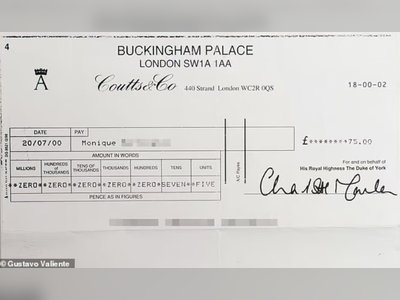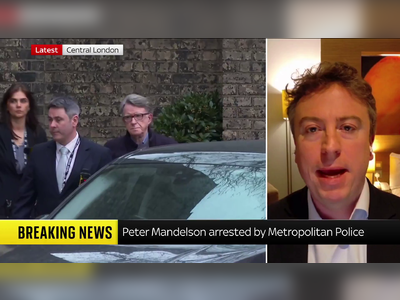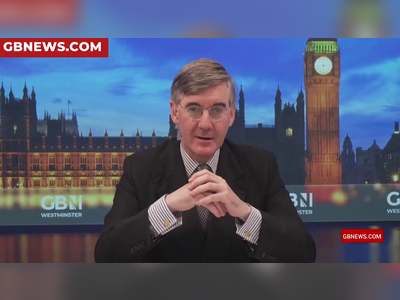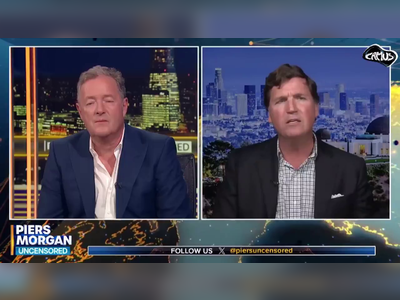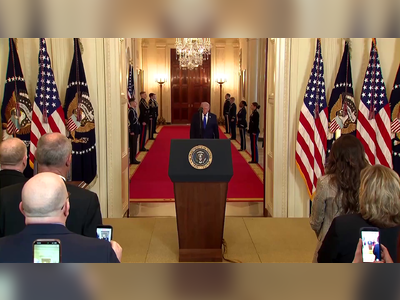
London's centre of intrigue and scandal
A flash of green amid traffic-choked roads, elevated railway lines and anonymous high-rise apartment and office blocks, Vauxhall Pleasure Gardens is a well-kept but unremarkable south London park. When I visited on a sunny spring afternoon, wildflowers dotted the grass and shouts sounded from the football pitch. At the edge of the seven-acre park, mesmerised children gazed at a trio of freshly trimmed alpacas, residents of Vauxhall City Farm. In the distance loomed the headquarters of the Secret Intelligence Service, an ironically distinctive green-and-cream hulk on the south bank of the Thames.
It may not look it now, but this area was once home to the greatest entertainment venue in Georgian London. The original Vauxhall Pleasure Gardens was a centre of culture, spectacle, intrigue and scandal during the 18th and 19th Centuries, immortalised in paintings by artists such as Canaletto and William Hogarth and in novels like William Thackeray's Vanity Fair, which noted that "there is no headache in the world like that caused by Vauxhall punch". Frequented by everyone from Charles Dickens to Venetian playboy Giacomo Casanova, Vauxhall transformed the capital's nightlife and helped Londoners shake off some of the shackles of everyday life.
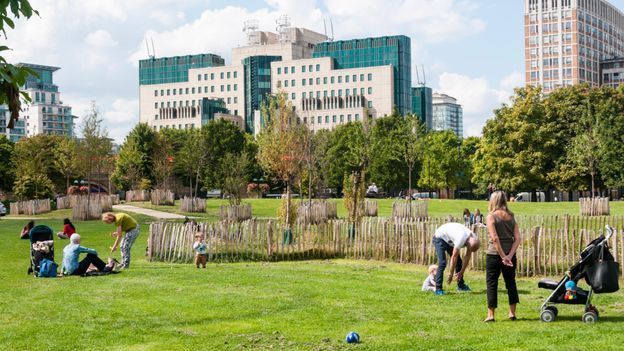 In 2012, Spring Gardens was revamped and renamed Vauxhall Pleasure Gardens
In 2012, Spring Gardens was revamped and renamed Vauxhall Pleasure Gardens
"It was a place where the glittering world of wealth, fashion and high culture showed off its seedy underside; where princes partied with prostitutes, and the middle classes went to be shocked and titillated by the excess on display," wrote curator Danielle Thom in a series of articles on pleasure gardens for the Museum of London. "Simultaneously an art gallery, a restaurant, a brothel, a concert hall and a park, the pleasure garden was the place where Londoners confronted their very best, and very worst, selves."
Emerging in the early decades of the 1700s on what was then the rural outskirts of London, pleasure gardens were enclosed outdoor spaces where people paid an admission fee to spend a summer evening eating, drinking, checking out the latest cultural offerings, and – in many cases – indulging in some rather more risqué and insalubrious activities. There were pleasure gardens in Chelsea and Marylebone, among other places, but the most famous and influential was Vauxhall.
The 12-acre site was originally known as New Spring Garden, which had been a place to drink, socialise and engage in illicit encounters since the 1660s. But it came into its own in 1729 after being sublet to an entrepreneur named Jonathan Tyers, who transformed the site into a fixture on the capital's nightlife scene for more than a century. "It was where everybody wanted to go because it was where everyone else went," said David Coke, co-author of Vauxhall Gardens: A History. "You went to Vauxhall to see what was happening, who was there, what people were wearing, what they were doing, who they were mixing with. It was a huge source of gossip – the social media of its day."
Under Tyers, Vauxhall encompassed landscaped gardens, woodlands, water features and tree-lined avenues. There were pavilions, colonnades, porticoes, grottos, plazas and a rotunda, the architecture drawing on a patchwork of influences from Europe, the Middle East and Asia. New features were added constantly and some elements broke new ground: a bandstand known as the Orchestra was "possibly the first building in London designed specifically and solely for the performance of music," according to Coke.
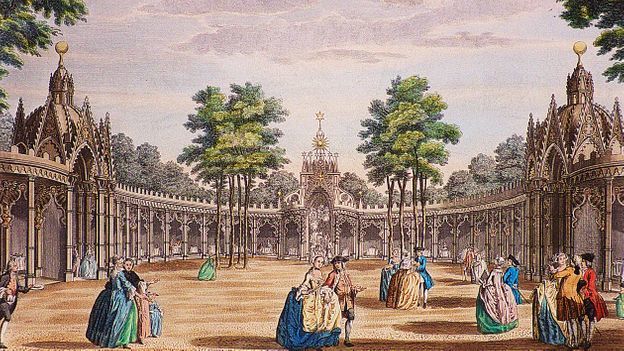 Vauxhall Pleasure Gardens was once the greatest entertainment venue in London
Vauxhall Pleasure Gardens was once the greatest entertainment venue in London
Music was a major draw for the 1,000 or so nightly visitors to Vauxhall, which hosted the leading musicians and composers of the day; George Frederic Handel made regular appearances; and Thomas Arne – best known for "Rule, Britannia!" – was Tyers' in-house composer. There were fancy dress and masquerade balls, as well as raucous celebrations to mark major events. Paintings, sculptures, statues and other artworks were prominently displayed, while waiters served alcoholic drinks, cold meats, salads and cakes to diners seated in "supper boxes".
"Vauxhall appealed to all the senses," said Coke. "The streets of London at the time were smelly, dangerous, noisy, but you went to Vauxhall and could relax, feel free, a world apart. It became like an addictive drug. That's why people kept going back again and again."
The presence of celebrities and royalty – such Frederick Louis, Prince of Wales, who was the landlord of the site – helped to attract the crowds, but Tyers had an egalitarian outlook and a desire to provide something of a cultural education. Vauxhall was open to all members of society: for many years the admission fee was a shilling (roughly £15-20 today), which made the pleasure gardens accessible to a diverse audience. There was also a greater degree of mixing between the sexes, enabling people to push at the restrictions of Georgian life. Needless to say, sex was a key element of Vauxhall, which had plenty of secluded areas suitable for romantic encounters, as well as sex work.
"It was one of the few places where the classes and sexes could mix freely," said author Laura Shepherd-Robinson, whose new book, Daughters of Night, opens with the discovery of a murdered woman in Vauxhall Pleasure Gardens. "There was a glamorous, fashionable side – the finest in society turned out in their best clothes and were written about by journalists – but also definitely a tackiness. And then there was the sleazy bit. It was a venue for scandalous liaisons and secretive assignations. Mothers were warned to take great care of their daughters and not to let them out of their sight as they could be seduced by a handsome butcher or whatever."
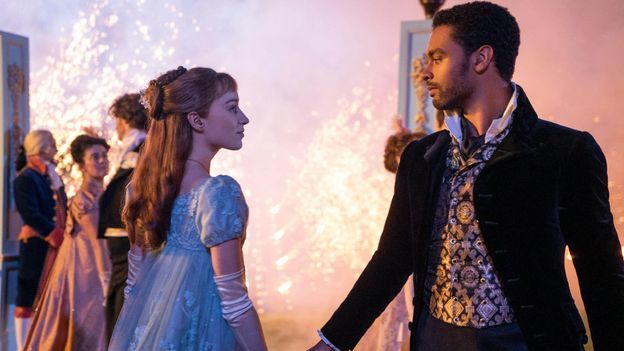 The gardens featured in the Netflix series Bridgerton, although the location was recreated at Castle Howard and Stowe Park
The gardens featured in the Netflix series Bridgerton, although the location was recreated at Castle Howard and Stowe Park
The architecture, design and art of the pleasure gardens also brought the world – or at least a certain Georgian and early Victorian perspective of the world – to many people who would never have the opportunity to travel. There were Italian-style piazzas, representations of the ancient ruins of Palmyra in what is now Syria, and Chinese-influenced pavilions. "Going to Vauxhall was like going to another country, said Coke. "You could see little bits of foreign lands without leaving London."
Vauxhall spawned many imitators. At one stage London had more than 60 pleasure gardens, and there were others across Britain and in continental Europe, the US, Russia and Australia. Yet as the 1800s progressed, Vauxhall struggled to keep up with the changing tastes of its audience. The wealthy, fashionable set drifted away, and the introduction of firework displays, ballooning, tightrope walkers and other spectacles provided only a temporary fillip. The management changed hands several times but always lacked Tyers' magic touch. New forms of entertainment – notably music halls and seaside piers – became increasingly popular, while the growth of the railways allowed people to spend their leisure time further afield.
Moreover, as the capital expanded, outlying areas like Vauxhall were swallowed up. Land values increased until eventually it became more profitable to redevelop the site than maintain the pleasure gardens. On 25 July 1859, Vauxhall closed its doors for good. Three hundred homes were subsequently built, many of which were damaged or destroyed 80 years later in the Blitz, before slum clearances in the 1960s and '70s largely completed the job. In 1976 a park named Spring Gardens was built on the site.
The past decade has seen renewed interest in Vauxhall Pleasure Gardens, with exhibitions at the Museum of London and the Foundling Museum, and appearances in the 2018 TV adaption of Vanity Fair and Netflix's Bridgerton. In 2012, Spring Gardens was revamped and renamed Vauxhall Pleasure Gardens. Information boards now provide an overview of the history, and a striking pair of modern 18m-high concrete columns topped with sculptures – a modern man offering a flower to an 18th-Century woman; a nod to the park's past and current incarnations – stand at the main entrance. The excesses of the pleasure gardens, though, are not encouraged, with signs warning visitors they are in a "controlled drinking zone".
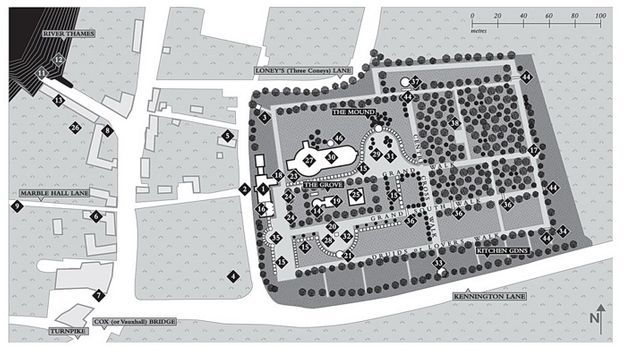 Vauxhall Pleasure Gardens spanned 12 acres on what was then the rural outskirts of London
Vauxhall Pleasure Gardens spanned 12 acres on what was then the rural outskirts of London
Although few material elements remain, the legacy of the original Vauxhall Pleasure Gardens lives on. Coke believes that it helped to lay the groundwork for London as a modern, cosmopolitan city and a cultural, culinary and nightlife capital, something highlighted by the presence of iconic LGBTQ+ venue the Royal Vauxhall Tavern, which was built in 1862, shortly after the pleasure gardens closed, and now sits at the edge of the park.
"The pleasure gardens didn't finish, they just morphed into other things," he said. "They are our television, films, cafes and foreign travel. Vauxhall's DNA is everywhere."
And perhaps, given the current circumstances, they are due a comeback. "There isn't really any reason you couldn't make them work today," said Shepherd-Robinson. "Wouldn't it be fabulous to have art exhibitions and dining under the stars? It would be great for the pandemic."
After leaving the park I cut through an underpass to Vauxhall Station. The walls were covered with a mural of the pleasure gardens in their heyday, as well as an extract from an 18th-Century ballad that provided a final echo of the past:
"Each profession, ev'ry trade
Here enjoy refreshing shade,
Empty is the cobbler's stall,
He's gone with tinker to Vauxhall,
Here they drink, and there they cram,
Chicken, pasty, beef and ham
Women squeak and men drunk fall
Sweet enjoyment of Vauxhall."
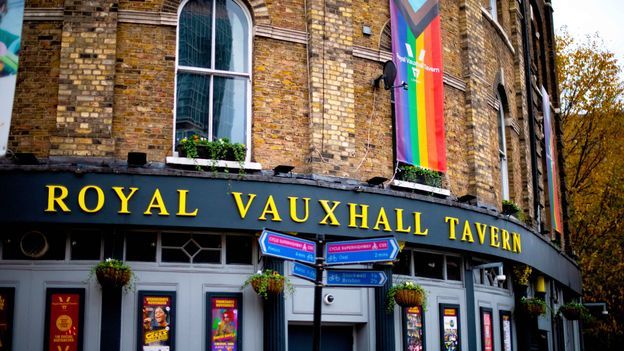 Iconic LGBTQ+ venue the Royal Vauxhall Tavern was built shortly after the pleasure gardens closed
Iconic LGBTQ+ venue the Royal Vauxhall Tavern was built shortly after the pleasure gardens closed



